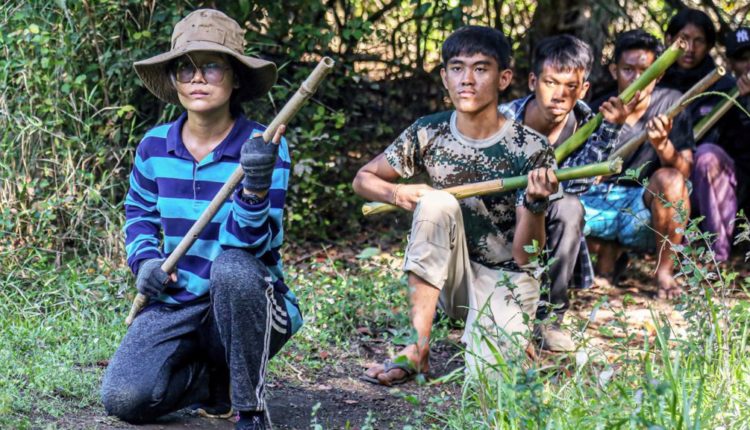Myanmar is seeing increasingly deadly battles between its military and organised groups of armed civilians, new data suggests. Many of those fighting the military are young people who have put their lives on hold since the junta seized power a year ago.
The intensity and extent of the violence – and the co-ordination of the opposition attacks – point to a change in the conflict from an uprising to a civil war.
Violence is now spread across the country, according to data from conflict monitoring group Acled (Armed Conflict Location and Event Data Project). Reports from the ground also suggest the fighting has become increasingly co-ordinated and has reached urban centres which have not previously seen armed resistance to the military.
Although precise death tolls are hard to verify, Acled – which bases its data on local media and other reports – has collated figures to suggest about 12,000 people have been killed in political violence since the military seized power on 1 February 2021. Clashes have grown deadlier month on month since August.
In the coup’s immediate aftermath, most civilians died as security forces cracked down on nationwide demonstrations. Now, however, the rising death toll is a result of combat – as civilians have taken up arms – Acled figures show.
UN Human Rights chief Michelle Bachelet agreed in an interview with the BBC that the conflict in Myanmar, also known as Burma, should now be termed a civil war and called on the UN Security Council to take “stronger action” to put pressure on the military to restore democracy. She said the international response to the crisis had “lacked urgency” and described the situation as “catastrophic”, warning that the conflict now threatened regional stability.
The groups fighting government forces are known collectively as the People’s Defence Force (PDF) – a loose network of civilian militia groups largely made up of young adults.
Hera (not her real name), 18, had just finished high school when she joined anti-government protests following the coup. She has put university plans on hold to become a PDF platoon commander in central Myanmar. She says she was motivated to join the PDF after the high-profile death of student Mya Thwe Thwe Khaing who was shot during the February 2021 protests. Hera’s parents were initially concerned when their daughter began a PDF combat training course, but they relented when they realised she was serious.
“They told me: ‘If you really want to do it, do it to the end. Don’t give up halfway.’ So I talked to my trainer and fully joined the revolution five days after the training.”
Before the coup, people like Hera had grown up enjoying a degree of democracy. They deeply resent the military takeover and are being supported and trained by other ethnically-driven militias in the border regions who have been fighting the military on and off for decades. BBC


Comments are closed.